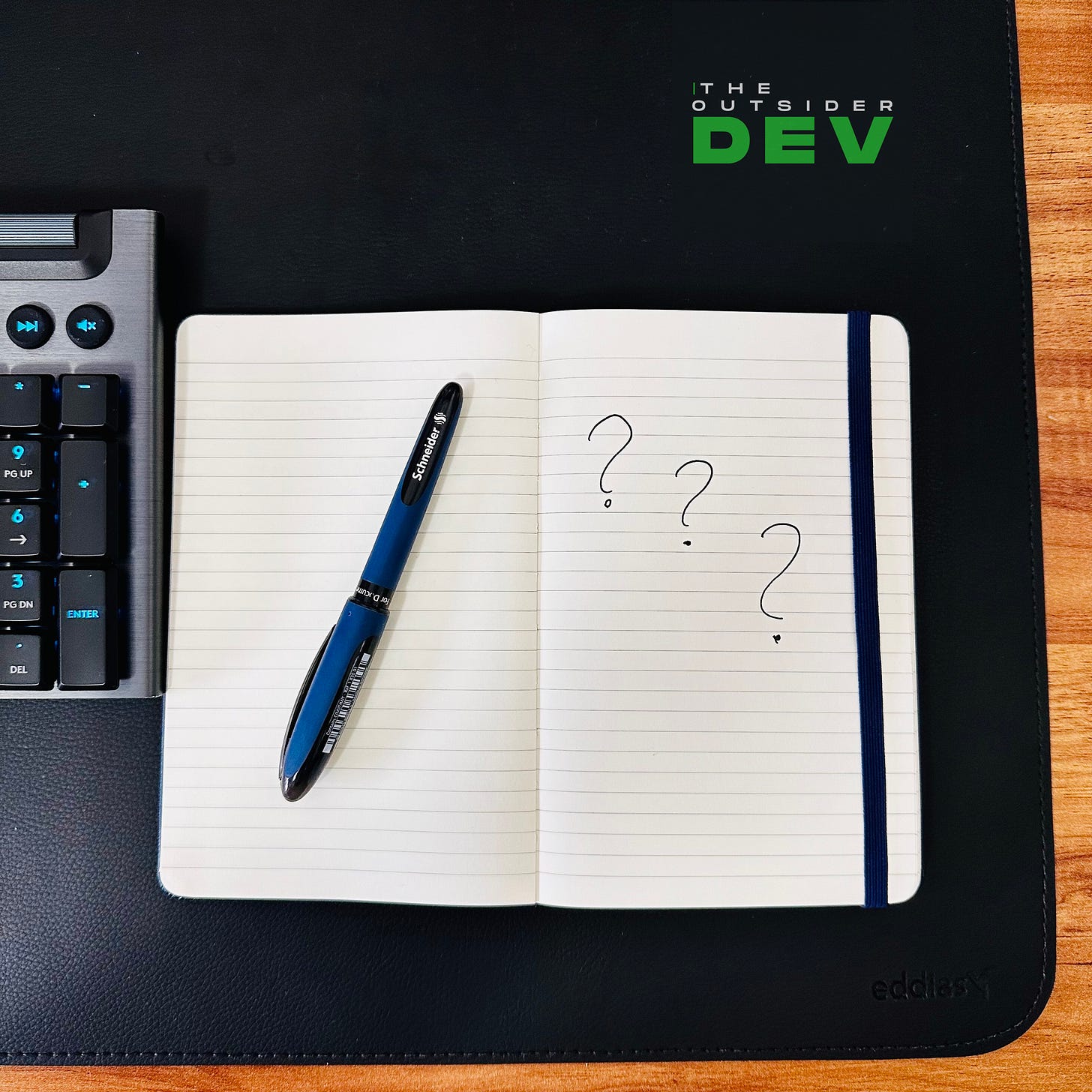The Confidence of Not Knowing
How to escape the embarrassing situation of unfamiliar questions in interviews
Few things make us more terrified in a technical interview than not knowing an answer.
You’re being hired because of your experience so you must know your stuff, right? And if the interviewer is asking about this specific topic, it’s because they expect you to know it, isn’t it?
If you’re a self-taught developer, you feel even more pressure. Is this knowledge gap something obvious I should have studied?
I want to share with you some ways to approach this situation and turn the odds in your favor.
First of all, after hearing the question, ask for clarification. You may have misunderstood it or you simply know the topic by a different name (especially true if you’re interviewing in a foreign language). This could even spark some ideas or find something deep down in your memory.
If you really have no idea, admit you don’t know the answer. Being honest is good and immediately takes the pressure off of giving a perfectly accurate answer. Revolving around answers you don’t know makes you look unreliable and feels like dishonesty.
The truth is no one knows everything, and the most important part comes next.
Now, you’ll want to express your eagerness to learn.
Talk about how this has been on your list, or share related topics you’ve been reading about but haven’t got to that specific part yet. Connect the missing part of knowledge to your ongoing learning journey.
If it’s something you really know nothing about, explain how you would approach this problem in real life and offer your thought process to solve it.
Quick story: I learned what a trie is during an interview years ago. The coding challenge was a great candidate for this data structure. So while I was having trouble solving it “correctly”, we discussed different data structures and how they wouldn’t fit in that situation.
Using logical thinking and adjacent knowledge put me in a position where the interviewer was convinced that I didn’t know the best answer at the moment, but I would eventually find out.
At some point, he started explaining how he would approach the problem using a trie. I demonstrated interest, asked questions, and made changes to the code. I sincerely thanked him for teaching me that. Two weeks later, it was my first day at the job.
Disclaimer: not all my interviews end up like that. Read about The Day I Froze In a Technical Interview.
After the interview, do your research and send an e-mail to the interviewer mentioning that you’ve looked into the topic and provide your findings.
And finally, don’t forget to add the topic to your learning list! (I’m sure you have one, don’t you?)
Next time you get this question, you’ll definitely have way more confidence to talk about it and come up with a great solution.
And then, of course, get another question you don’t know the answer to.
See you soon!
Josias


